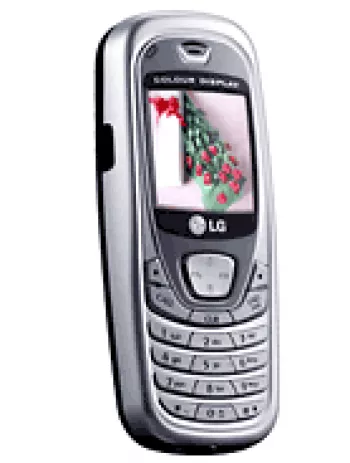
Network Capabilities
The LG U960 was equipped with robust network capabilities for its time. Supporting GSM and HSPA technologies, it provided users with a seamless connectivity experience. The device operated on 2G bands of GSM 900, 1800, and 1900. For users desiring faster internet speeds, the device accommodated 3G bands with HSDPA 2100, boasting HSPA speeds of up to 3.6/0.384 Mbps. This enabled quicker data transfer, smoother web browsing, and improved communication functionalities for users who needed reliable connectivity on the go.
Launch and Status
Announced in the third quarter of 2007, the LG U960 marked its entry at a time when mobile technology was rapidly evolving. By combining essential features tailored for everyday use, it gained attention in the feature phone market. However, despite its initial success, the device was eventually discontinued, making it a historical piece of technology, representing a snapshot of the mobile advancements of its period.
Design and Build
The LG U960 displayed a distinctive design with dimensions of 103.9 x 52.4 x 19.7 mm, compact enough to fit comfortably in the user’s hand. Weighing 123 grams, the phone had a solid feel ensuring durability. The use of a Mini-SIM was standard at the time, accommodating users who preferred straightforward mobile functionalities in a pocket-sized, lightweight device.
Display Quality
This device featured a 2.2-inch TFT display capable of rendering 256K colors, which was a significant feature for feature phones of that time. With a screen-to-body ratio of ~27.5% and a resolution of 240 x 320 pixels (~182 ppi density), it provided clear and vibrant display quality, albeit small by modern standards. The color richness and clarity enabled users to enjoy media and browse the interface with reasonable satisfaction.
Memory Specifications
The LG U960 was equipped with a microSD slot, allowing users to expand their storage, which was initially limited to an internal capacity of 45MB. This feature enabled the device to handle additional photos, music, and other digital data efficiently. Its phonebook had a Photocall feature, and it could store a comprehensive list of call records, with up to 10 each of dialed, received, and missed calls, allowing users to keep track of their frequent contacts more easily.
Camera Features
The main camera on the LG U960 was a single 2 MP lens, capable of capturing basic images and recording video at 320p, suitable for casual photography needs. Despite the limited resolution by today's standards, it was adequate for users during its release who valued functionality over high-end photographic quality. For video calls, a VGA videocall camera was available, heralding an early adaptation to visual communication methods.
Sound and Alerts
Sound-wise, the LG U960 featured a built-in loudspeaker, although it did not offer a 3.5mm audio jack. The device supported a variety of alert types including vibration, downloadable polyphonic tones, MP3, MPEG4, AAC+, WMA/V, MIDI, and AMR ringtones. This array of audio support ensured users could personalize their alert tones extensively, an important feature for many mobile users seeking customization options.
Communication Features
Communications were a key component of the LG U960's design. However, it lacked WLAN and positioning technologies, which limited its ability to offer wireless internet and GPS features. It did support Bluetooth 1.2 with A2DP, a then-modern approach to wireless audio. While there was no radio feature, it did offer USB 2.0 capability, allowing users to connect the phone to a computer for file transfer and media management activities efficiently.
Additional Features and Battery Life
The device supported Java, specifically MIDP 2.0, and allowed for downloadable games, broadening its entertainment value. Users could exchange SMS, MMS, and emails through the phone's messaging facilities. A WAP 2.0/xHTML, HTML browser further extended its communication capabilities. The LG U960 operated on a removable Li-Ion 1000 mAh battery, providing reliable power for the device’s basic functionalities and ensuring users could engage with their device without frequent recharging.
Miscellaneous
Other notable specifications included the device's availability only in black and an SAR rating of 1.36 W/kg for the head and 0.67 W/kg for the body, indicative of its compliance with safety standards concerning radiation. Priced initially at about 70 EUR, it was positioned as an affordable yet functional choice for users seeking a reliable feature phone option.
Key Features of LG U960
- Supports GSM / HSPA technology for better connectivity.
- 2 MP main camera for capturing photos.
- VGA front camera for video calls.
- MicroSD card slot for expandable memory.
- Bluetooth 1.2 with A2DP support for wireless audio devices.
- Removable Li-Ion 1000 mAh battery for easy replacement.
- Support for SMS, MMS, and Email messaging features.
- Java MIDP 2.0 enabled for downloading additional apps and games.
- Compact and lightweight design, weighing only 123 g.
Drawbacks of LG U960
- Outdated network technology limited to GSM and HSPA, with no support for 4G or 5G.
- Small display size of 2.2 inches with a low screen-to-body ratio of ~27.5%.
- Low internal memory capacity of only 45MB.
- Main camera resolution is just 2 MP, which is considered low by modern standards.
- No 3.5mm headphone jack available.
- Lack of Wi-Fi connectivity limits internet access capabilities.
- No GPS positioning features.
- No FM Radio feature.
- Obsolete Bluetooth version 1.2, which may not be compatible with newer devices.

View Also
More Phones
All Rights Reserved +14267 Phones © Mobilawy 2025

























